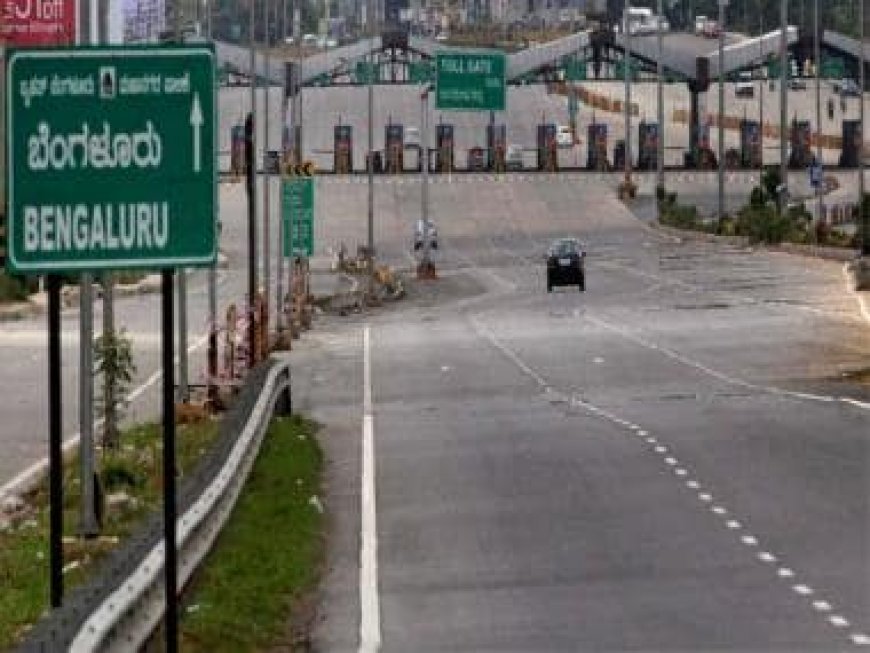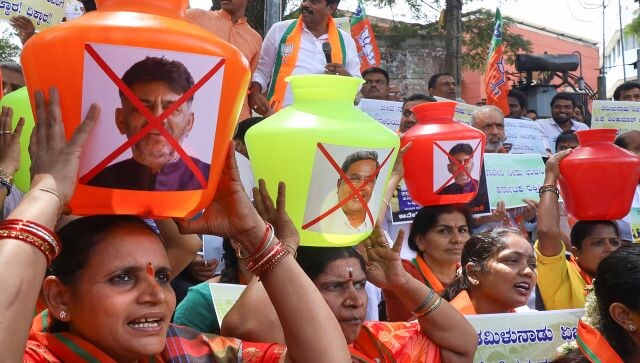Bengaluru bandh over Cauvery water-sharing: Why Karnataka, Tamil Nadu are fighting again
Bengaluru bandh over Cauvery water-sharing: Why Karnataka, Tamil Nadu are fighting again

Schools and colleges are shut in Bengaluru on Tuesday. Google and Walmart have asked employees to work from home. Domestic airlines like IndiGo and Vistara have issued advisories to passengers travelling to the city. The Karnataka capital has come to a standstill amid continuous protests against the release of Cauvery water to Tamil Nadu and the call for a bandh.
There are two bandhs this week. The second is a statewide strike called on 29 September, Friday. The 200-year-old dispute over the sharing of the Cauvery water between Karnataka and Tamil Nadu has resurfaced despite the Supreme Court verdict in 2018.
What was the 2018 verdict in the Cauvery dispute?
Karnataka and Tamil Nadu have been sparring over the allocation of Cauvery water since the British colonial rule. In 1924, the Mysore princely state and the Madras presidency arrived at a consensus. Mysore was permitted to build a dam at Kannambadi village to store 44.8 thousand million cubic feet of water, an agreement which was valid for 50 years following a review.
Post-Independence both states continued to fight and took the dispute to the Supreme Court.
In the 2018 verdict, the Supreme Court reduced the allocation of water from Karnataka to Tamil Nadu. Karnataka now supplies 177.25 thousand million cubic feet (TMC) instead of 192, a reduction of 14.75 TMC, from its Billigundlu site to the Mettur dam in Tamil Nadu. The court observed that Bengaluru had attained the “global status” and its drinking water requirement had increased multi-fold.
How did the Cauvery dispute start again?
According to the SC verdict, Karnataka has to release 123.14 TMC of water to Tamil Nadu between June and September. It should release 45.95 TMC of water in August and 36.76 in September in case of a normal monsoon, according to a report in The Indian Express.
However, until 23 September, Karnataka released only 40 TMC of water to Tamil Nadu, saying that the monsoon wasn’t normal and the state was in distress.
In August, Tamil Nadu approached to Cauvery Water Management Authority (CWMA), a central agency which regulates the water dispute between the two states, about the irregular water supply
The Cauvery Water Regulation Committee under the CWMA made recommendations after looking into the issue. Based on this, the authority on 12 August ordered the release of about 13 TMC of water for 15 days at the rate of 12,000 cusecs to Tamil Nadu. It had asked for 25,000 cusecs per day.

On 28 August, CWMA reviewed the situation and reduced the amount of water released to Tamil Nadu to 5,000 cusecs per day.
Both the states approached the SC to challenge these orders. Tamil Nadu wanted more water – 12,000 cusecs per day and Karnataka said it had no water to share. On 21 September, the apex court upheld the CWMA order, directing Karnataka to release 5,000 cusecs of water per day to Tamil Nadu until 27 September, an additional 15 days.
Why has a bandh been called in Bengaluru?
Various pro-Kannada groups, farmers and labour unions have called for the bandh on Tuesday. They have the support of the Opposition Bharatiya Janata Party (BJP) and Janata Dal Secular.
The protest is against the Congres government in Karnataka, which has decided to abide by the directive to follow orders by the CWMA to release 5,000 cusecs per day. The demonstrators are pressuring the state government to not release water to Tamil Nadu until the situation is reviewed again.
Protesters in Karnataka argue that water is being released to Tamil Nadu despite storage levels in the Cauvery basin reservoirs in its state being low. Officials in Karnataka say that there was “no water available” to release as it faces a drought-like situation. They state that Tamil Nadu will receive most of its rainfall between October and November from the retreating northeast monsoon.
Political parties in both states argue that the SC order on water-sharing chalked out the rules for a normal monsoon and when there was a rainfall deficit like this year. The southwest monsoon is coming to a close, and in the current year, rainfall has been more than 30 per cent below normal.
In Karnataka, the rainfall in August and September – two out of the four monsoon months starting June – has been the lowest in more than 120 years.
#WATCH | Farmers’ organisation holds protest on Cauvery water sharing issue in Freedom Park, Bengaluru pic.twitter.com/ZR0eRyE8hj
— ANI (@ANI) September 26, 2023
How has the bandh affected Bengaluru?
The Bengaluru bandh has been called by Karnataka Jala Samrakshana Samiti, an umbrella outfit of farmers’ associations and other organisations led by farmer leader Kuruburu Shanthakumar. Schools and colleges are shut and some companies have asked employees to work from home.
Auto drivers, Karnataka State Road Transport Corporation, Bengaluru Metropolitan Transport Corporation and other transport corporations had extended support to the bandh call. However, BMTC has said that it will operate a limited number of buses on essential routes.
#WATCH | Karnataka: Security forces deployed in Bengaluru's Whitefield as a Bandh has been called by various organizations, in Bengaluru, regarding the Cauvery water issue pic.twitter.com/19mrBYboiW
— ANI (@ANI) September 26, 2023
Security has been tightened in the Krishnagiri district along the Tamil Nadu-Karnataka border. Bus services from Karnataka to Tamil Nadu faced disruptions.
App-based cab services like Ola and Uber are available. Ola-Uber Drivers’ Association on Monday said they would extend full support for the September 29 ‘Karnataka Bandh’ called by pro-Kannada organisations but will not support Tuesday’s ‘Bengaluru Bandh’.
Flights at the Kempegowda International Airport are operating normally.
Restaurants in the city will remain closed today, said PC Rao, the president of the Bangalore Hoteliers Association. “It’s our duty, we are also supporting the bandh as we are not getting justice for several years,” he said, according to an ANI report.
Shopping malls, theatres, and multiplexes are closed.
Essential services, including hospitals, nursing homes, medical shops, banks and government offices, will stay open.
With inputs from agencies
What's Your Reaction?



























































